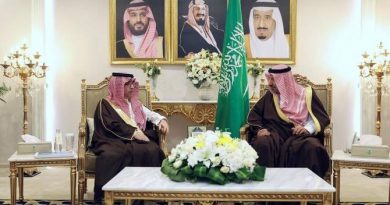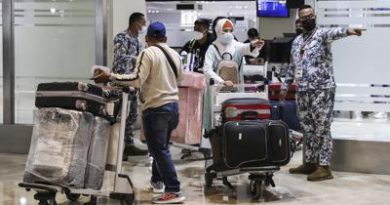Meeting Between Trump Envoys and Russian Official in Miami Raises Questions Over New Ukraine Peace Proposal
Washington — Growing concerns have emerged in the United States following a private meeting in Miami between members of the Trump administration and senior Russian figure Kirill Dmitriev, a sanctioned envoy who leads the Russian Direct Investment Fund.
The discussions resulted in a 28-point peace proposal for the war in Ukraine, prompting debate across Washington and among allies in Europe.
The meeting took place at the end of October and involved special envoy Steve Witkoff, Jared Kushner, and Dmitriev.
Despite sanctions imposed on Dmitriev and his fund, a special waiver reportedly allowed his entry into the United States for the talks.
According to sources familiar with the exchanges, the plan was crafted without broad consultation across U.S. agencies.
This has caused confusion among officials who say they were unaware of the negotiations or their outcome until the plan became public.
Dmitriev, a close associate of President Vladimir Putin, has been a key figure in previous informal dialogues with U.S. representatives regarding the conflict.
His continued involvement has raised concerns in the intelligence community about potential influence and strategic intentions.
The document produced in Miami calls for major concessions from Ukraine, including territorial compromises and recognition of Russia’s control over Crimea.
Officials in Kyiv have rejected the idea and stressed that Ukraine would not accept any agreement that undermines its sovereignty.
President Volodymyr Zelenskiy reiterated that Ukraine’s national interests remain non-negotiable.
He emphasized that any peace proposal must respect internationally recognized borders and provide credible security guarantees.
Some members of the Trump administration defended the effort, saying the initiative aimed to explore all possible diplomatic channels.
They argued that the plan was intended to represent a realistic framework that could pave the way for broader negotiations.
However, senior officials within the State Department and National Security Council expressed unease about being sidelined.
They noted that the lack of coordination could lead to mixed signals to allies and undermine established diplomatic processes.
One official said the proposal contains elements previously rejected by the administration, raising questions about how the discussions were conducted.
This has fueled speculation that individuals close to the president may have acted independently of the structured interagency approach.
The concerns also extend to the involvement of Ukrainian National Security and Defense Council Secretary Rustem Umerov.
Two sources said he was in Miami around the same time, though he described his role as purely technical and denied substantive discussions.
Reports indicate that the United States delivered the proposal to Ukraine via Turkish channels before presenting it in Kyiv the following day.
This timeline has added to confusion over decision-making and the rapid pace of developments.
The White House said any peace plan must provide credible security assurances for Ukraine, Europe, and Russia.
Officials highlighted the need for a balanced approach that protects long-term stability while acknowledging present realities.
Despite these reassurances, lawmakers on Capitol Hill voiced skepticism about the Miami-drafted document.
They argued that proposals requiring Ukraine to surrender territory could embolden Russia and weaken international norms.
Experts also urged caution, noting that Russia’s positive signaling toward the plan may indicate a strategy to secure more favorable terms.
Analysts have warned that accelerating negotiations within a week may not allow for sufficient review or diplomacy.
Dmitriev’s broader history of engagement with U.S. political and business circles has also resurfaced.
His previous attempts to influence relations between the two countries have been documented in earlier investigations and public records.
During the pandemic, Dmitriev worked with Kushner on medical supply initiatives, which at the time raised questions about sanctions compliance.
He has also maintained a presence at global economic forums to advocate stronger U.S.-Russia cooperation.
His meeting in Miami included interactions with U.S. Representative Anna Luna, where discussions focused on expanding economic ties.
Images from the meeting circulated widely, drawing scrutiny from observers familiar with his sanctioned status.
The gathering took place at a hotel associated with prominent business figures with ties to Russia.
This backdrop has fueled additional questions about the nature of the discussions and the networks involved.
As the administration evaluates next steps, officials across multiple agencies are reviewing the implications of the Miami proposal.
The situation underscores the complexities of wartime diplomacy, especially when unofficial channels intersect with strategic negotiations.
For now, the peace plan has sparked debate within the United States and among international partners.
Many are waiting for clearer guidance on how Washington intends to proceed and how the proposal fits into broader policy goals.



